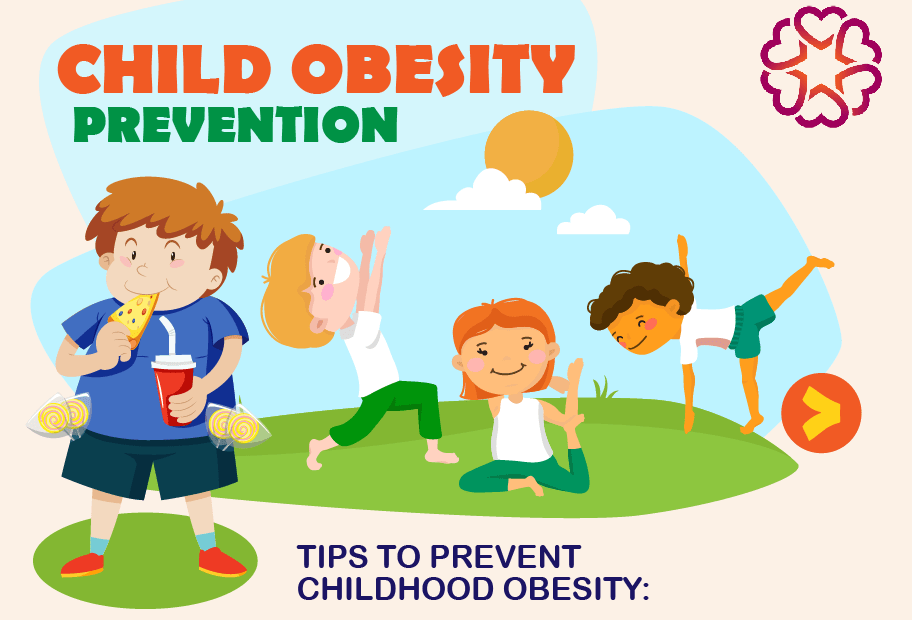Addressing Childhood Obesity is Complex and Requires a Holistic Approach
Childhood Obesity Prevention

The Claim in Context:
The American Academy of Pediatrics provides recommendations to support healthy living and help prevent obesity. When treating children and teens already experiencing obesity, pediatricians may offer intensive health behavior, nutrition counseling and lifestyle treatment. Medication and surgery are also safe, effective and evidence-based strategies that can be incorporated into a comprehensive treatment program for children with obesity, individualized to the needs of the patient and family.
Key Facts:
- Obesity is a complex and multifaceted problem with no simple solution, and the longer it is left untreated, the more challenging it becomes.
- Prevention at the individual and family level begins with high quality nutrition, physical activity, and adequate sleep, along with a positive approach to screen use and social-emotional wellness.
- The causes of obesity are not limited to just individual or family factors, such as genetics, nutrition and physical activity. Other factors include affordability and accessibility to healthy foods; safe physical environments that allow for active play; and addressing sources of toxic stress, which can affect the hormones that regulate weight.
- Obesity is a chronic disease that can adversely affect the physical and mental health of children and adolescents and carry into adulthood.
- The foundational approach to any treatment plan is intensive health behavior and lifestyle treatment in partnership with pediatricians and other pediatric health care providers.
- Healthy weight interventions are most effective when they involve the whole family and focus on behavior changes rather than weight alone.
- AAP’s recommendations to prevent and treat obesity are based on research that supports what strategies are most effective in pediatric populations. This includes AAP’s recommendation that pediatricians take a holistic approach starting with an understanding of the individual child, their family and their environment, and creating a customized plan for that family.
- Medication and surgery may be offered as part of a broader treatment plan, if the family and pediatrician agree on the approach. First, they take into account factors that include the patient’s age, obesity severity, and other medical conditions.
Evidence Snapshot
The current and long-term health of 14.4 million children and adolescents is affected by obesity, making it one of the most common pediatric chronic diseases in the United States. Research shows healthy eating, physical activity, adequate sleep and family meals specifically help achieve both goals. When treating a child or teen already diagnosed with obesity, evidence supports the effectiveness of intensive health behavior and lifestyle treatment, including 26 or more hours of face-to-face, family-based counseling on nutrition and physical activity over at least a 3- to 12-month period. Evidence also points to the effectiveness of medication or surgery as a part of the overall treatment plan for some children and teens. AAP recommends pediatricians take a comprehensive, holistic approach based on these proven strategies.
Why It Matters:
Nearly 1 in every 5 U.S. children ages 2 –19 have obesity, and the rates are higher for children who are Black or Hispanic according to the Centers for Disease Control and Prevention. These children are at much higher risk for developing serious medical conditions that traditionally were associated more closely with adults. Through evidence-based treatment options, we can not only address obesity but also prevent other chronic conditions such as high blood pressure, high cholesterol, type 2 diabetes and breathing problems such as asthma and sleep apnea. But actions by individuals are not enough. Policy and systems changes are needed to improve food quality and access, the availability of safe and developmentally appropriate physical activity and support of social emotional wellness. Children and youth, families, and pediatric professionals should not have to tackle this disease by themselves.
Experts Say:
“Addressing the rise in obesity rates requires both prevention and treatment, as well as policy-level changes to support healthy lifestyles. This includes nutrition, ample opportunities for safe and enjoyable physical activity, an environment that promotes quality and sufficient sleep, and positive supports to promote social and emotional wellness. At the same time, young people who have obesity should be offered intensive health and behavior lifestyle treatment.”
— Sandy Hassink, MD, FAAP, medical director of the AAP Institute for Healthy Childhood Weight Leadership and an author of the AAP clinical practice guidelines on obesity treatment.
https://www.aap.org/en/news-room/fact-checked/fact-checked-addressing-childhood-obesity-is-complex-and-requires-a-holistic-approach/
childhood obesity prevention
Preventing childhood obesity: a comprehensive approach
Childhood obesity is a significant public health concern with various contributing factors, including genetics, lifestyle habits, and environmental influences. Addressing this complex issue requires a multi-pronged approach involving families, schools, communities, and healthcare professionals.
Here are some key strategies for preventing childhood obesity:
1. Promoting healthy eating habits
- Offer balanced meals and snacks: Provide a variety of fruits, vegetables, whole grains, lean protein, and low-fat dairy products. Aim to make fruits and vegetables fill half the plate.
- Limit unhealthy foods and drinks: Reduce the intake of sugary drinks, fast food, and snacks high in saturated fat, sodium, and added sugar.
- Encourage mindful eating: Teach children to eat slowly and recognize their body's hunger and fullness cues.
- Be a role model: Parents and caregivers who adopt healthy eating habits set a positive example for children.
- Avoid using food as a reward or punishment: This can create an unhealthy relationship with food.
2. Encouraging physical activity
- Promote regular physical activity: Children aged 3-5 should be physically active throughout the day, while children aged 6-17 need at least 60 minutes of physical activity daily.
- Make it a family affair: Engage in activities like walking, biking, playing sports, or doing active chores together.
- Limit screen time: Reduce leisure screen time (TV, video games, etc.) to less than two hours per day for children aged 2 and older. Avoid screen time for children under 24 months.
- Create opportunities for physical activity: Ensure access to safe playgrounds, parks, and recreational facilities in the community.
- Integrate physical education into school curriculum: Schools play a crucial role in providing regular physical activity opportunities for students.
3. Prioritizing healthy sleep
- Establish consistent sleep routines: Adequate sleep duration is important for healthy growth and development, and can impact appetite regulation.
- Ensure sufficient sleep: Preschoolers need 11-13 hours of sleep per day (including naps), children aged 6-12 need 9-12 hours, and teenagers aged 13-18 need 8-10 hours.
4. Addressing social and environmental factors
- Promote breastfeeding: Breastfeeding may lower the risk of obesity later in life.
- Consider socioeconomic and cultural factors: Interventions need to be tailored to meet the needs of diverse populations, addressing factors like food access, safety, and cultural dietary practices.
- Support healthy school environments: Schools can implement policies and practices to promote healthy eating and physical activity, such as offering healthy meal options and increasing physical activity opportunities.
- Advocate for policies that support healthy choices: This includes policies that encourage access to healthy and affordable food, safe places to be active, and limit unhealthy food marketing targeted at children.
5. Seeking professional guidance
- Consult with healthcare professionals: If you have concerns about your child's weight, talk to their pediatrician or healthcare provider.
- Consider family healthy weight programs (FHWP): These programs offer a comprehensive, family-based approach to promote healthier lifestyles and manage weight.
The role of schools
Schools are a vital setting for obesity prevention due to their reach and ability to influence children's health behaviors. Effective school-based interventions often involve a comprehensive approach that includes nutritional education, physical activity programs, and policy changes.
Conclusion
Preventing childhood obesity requires a collaborative and multifaceted effort. Healthy habits can be built by focusing on healthy eating, regular physical activity, and adequate sleep. Addressing social and environmental influences and seeking professional guidance when needed are also important
· "Pediatrician Las Vegas"
· "Pediatric doctor near me"
· "Children's health clinic Las Vegas"
· "Las Vegas pediatric services"
· "Best pediatrician Las Vegas"
· "Top pediatricians near me Las Vegas"
· "Pediatric care Las Vegas"
· "Doctor for kids Las Vegas"
· "Infant and toddler care Las Vegas"
· "Newborn pediatrician Las Vegas"
· "Child vaccinations Las Vegas"
· "Well-child visits Las Vegas"
· "Sick visits Las Vegas"
· "After-hours pediatric care Las Vegas"
· "Developmental screenings Las Vegas"
· "ADHD management Las Vegas"
· "Asthma management Las Vegas"
· "Pediatric urgent care Las Vegas"
· "Pediatrician near me Las Vegas"
· "Pediatrician [specific neighborhood/zip code] Las Vegas"
· "Pediatric clinic Henderson NV" (if applicable)
· "Pediatric doctor [specific hospital affiliation] Las Vegas"
· "Pediatrician reviews Las Vegas"
· "Trusted pediatrician Las Vegas"
· "Board certified pediatrician Las Vegas"
· "Pediatrician referrals Las Vegas"
· "Pediatrician accepting new patients Las Vegas"
· "Pediatrician vaccine policy Las Vegas"
· "Holistic pediatrician Las Vegas"
· "Family-centered pediatric care Las Vegas"
· "Pediatrician with extended hours Las Vegas"

